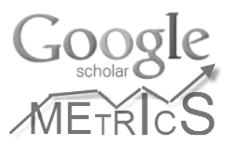Eficacia del Neurofeedback en el Trastorno de Estrés Postraumático en población adulta. Una revisión sistemática
Abstract
Resumen
Esta revisión pretende comprobar si el entrenamiento de Neurofeedback (NFB) es eficaz para la mejora sintomática del Trastorno de Estrés Postraumático (TEPT) en población adulta. Se realiza una búsqueda de estudios en las bases de datos PubMed y Science Direct. Los cinco estudios encontrados se centran en la regulación de la amplitud alfa con el entrenamiento de Neurofeedback a través del electroencefalograma (EEG) e imagen por resonancia magnética funcional (fMRI). En ellos se obtiene un aumento de amplitud alfa (“reboteâ€) tras el entrenamiento, asociado con la mejora sintomática, una mayor relajación y una conexión significativa entre amÃgdala y prefrontal. En base a la literatura, los resultados no reportan la eficacia y evidencia suficiente, pero se considera que la neuromodulación obtenida con NFB y asociada a la mejora sintomática, puede potenciar un progreso para el tratamiento tanto del TEPT como de otras patologÃas.
Palabras clave: Trastorno de Estrés Postraumático (TEPT); Neurofeedback (NFB); alfa; amÃgdala; córtex prefrontal; regulación emocional; revisión sistemática.
Â
Abstract
The given review tryes to verify if the trainning on Neurofeedback (NFB) provides a symptomatic improvement on the Posttraumatic Stress Disorder (PTSD) in an adult population. A search of studies is made in PubMed and Science Direct databases. The five studies found focus on the regulation of alpha amplitude with the training of Neurofeedback through electroencephalogram (EEG) and functional magnetic resonance imaging (fMRI). An increase in alpha amplitude ("rebound") is obtained after training, associated with symptomatic improvement, greater relaxation, and a significant connection between amygdala and prefrontal cortex. According to the literature, there´s not enough efficiency or evidence on the results, but it´s considered that the neuromodulation obtained through NFB and its associated symptomatic improvement, can enhance a progress for PTSD and other pathologies treatments.
Keywords: Posttraumatic Stress Disorder (PTSD); Neurofeedback (NFB); alpha; amygdale; prefrontal cortex; emotional regulation; systematic review.
Â
Resumo
Esta revisão visa verificar se o treinamento de Neurofeedback (NFB) é efetivo para a melhora sintomática do transtorno de estresse pós-traumático (TEPT) na população adulta. Uma pesquisa de estudos é realizada nos bancos de dados PubMed e Science Direct. Os cinco estudos encontraram foco na regulação da amplitude alfa com o treinamento Neurofeedback através do eletroencefalograma (EEG) e ressonância magnética funcional (fMRI). Neles, um aumento da amplitude alfa ("bounce") é obtido após o treinamento, associado à melhora sintomática, maior relaxamento e uma conexão significativa entre amÃgdala e pré-frontal. Com base na literatura, os resultados não relatam a eficácia e evidências suficientes, mas considera-se que a neuromodulação obtida com a NFB e associado à melhora sintomática pode potencializar o progresso no tratamento de TEPT e outras patologias.
Palavras-chave: Transtorno de estresse pós-traumático (TEPT); Neurofeedback (NFB); alfa; amÃgdala; córtex pré-frontal; regulação emocional; revisão sistemática.
Downloads
How to Cite
Issue
Section
License
Articles published in this journal are protected under the Creative Commons Attribution-NonCommercial-ShareAlike 4.0 International (CC BY-NC-SA 4.0) license. This means that authors retain full rights over their research and publications at all times. As a journal, we fully respect and promote the principles of open access established by this license, allowing the work to be shared, adapted, and distributed for non-commercial purposes, provided that appropriate credit is given to the authors and any derivative works are licensed under the same terms.
Authors are responsible for obtaining the required permission when they wish to reproduce part of the material (figures, etc.) from other publications.
Likewise, CNPs allows authors to host in their personal sites or other repositories that they deem convenient the Final and Definitive Version of the published article with the format assigned by the journal. In no case do we allow access to preprints of the article under evaluation or already published.
When submitting an article to CNPs you are aware that all the contents of CNPs are under a Creative Commons License. In which it is allowed to copy and share the contents freely, always making reference to the origin of the publication and its author.













